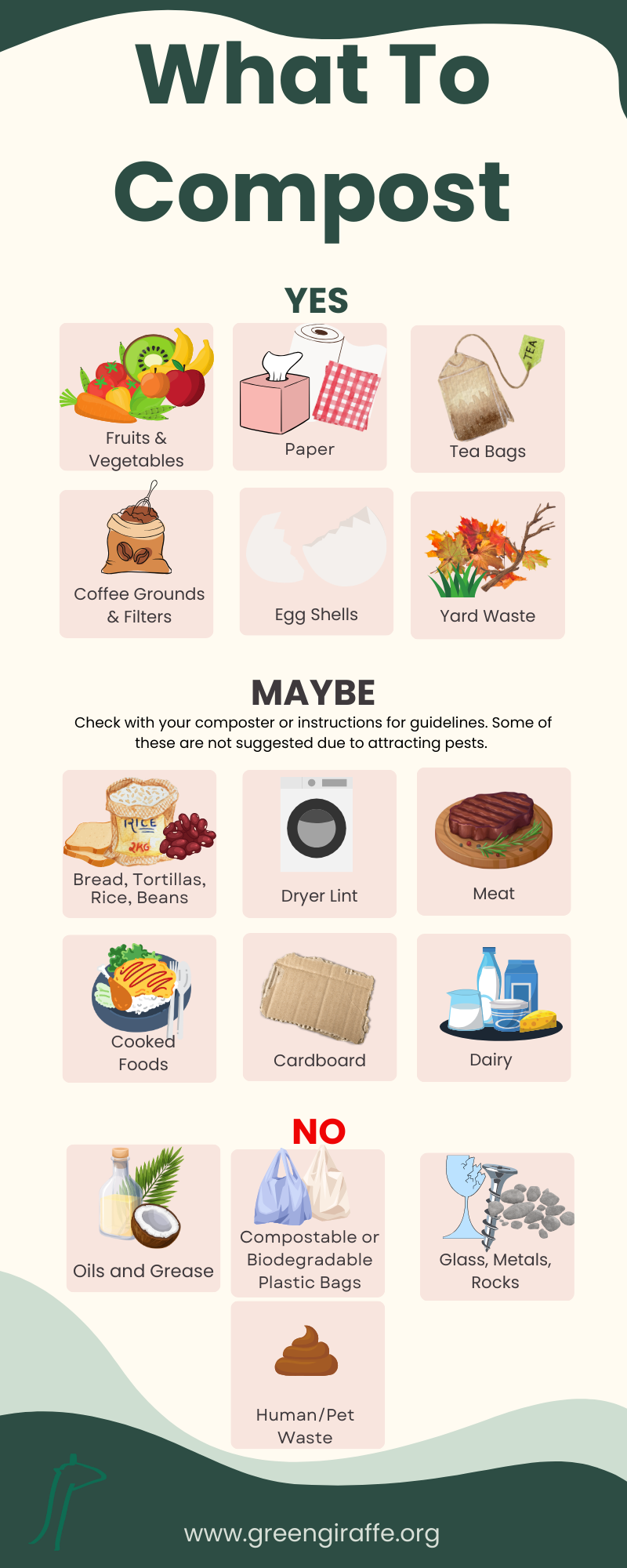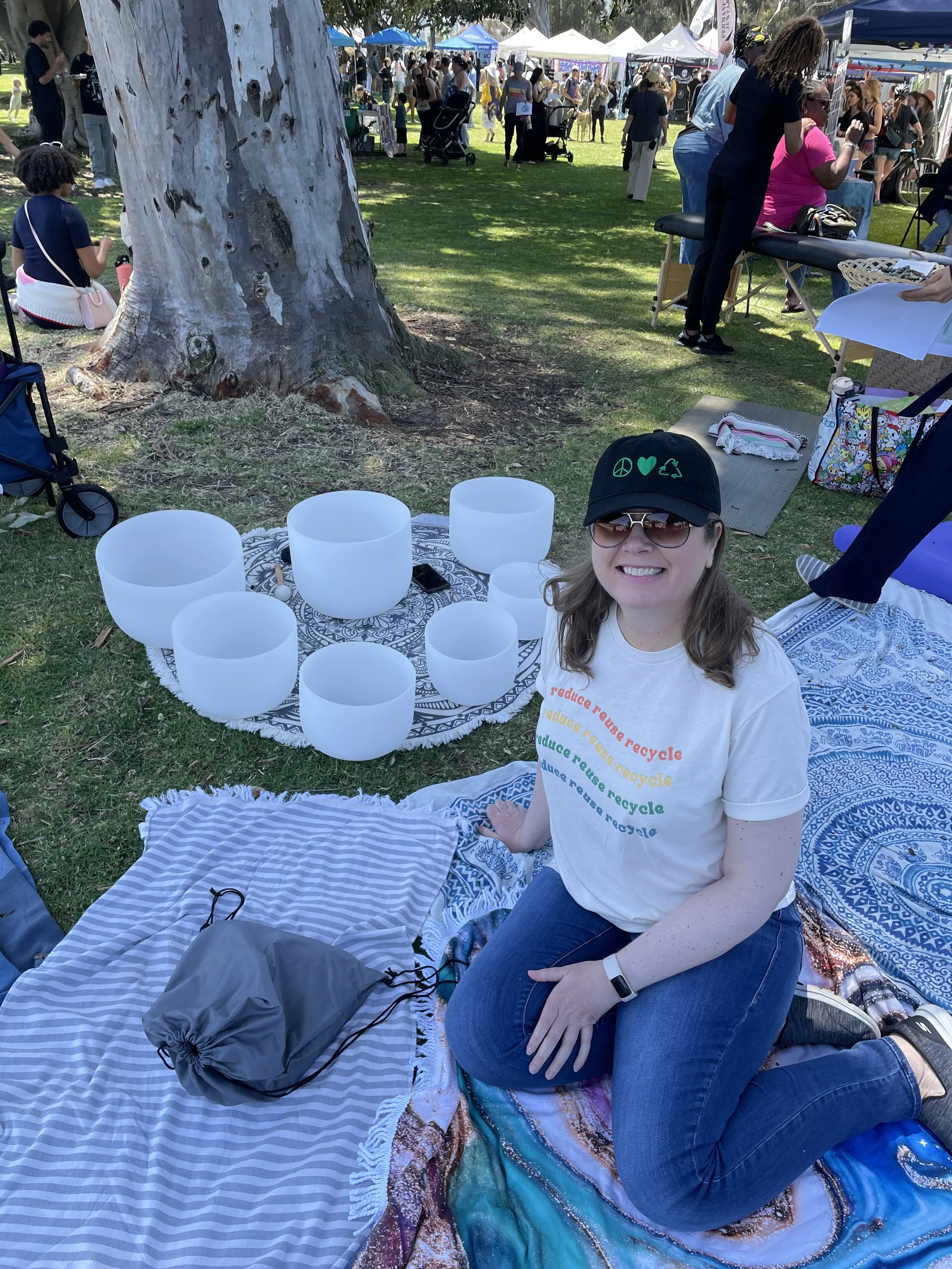How To Compost Food Scraps; Results From One Week
Some links in this article may be affiliate links where I make a commission if the product is purchased at no cost to you. As an Amazon Influencer, I earn from qualifying purchases. To avoid waste, we test products on an as-needed basis. All opinions are my own.
Introduction
Have you had trouble starting to compost food waste? I can relate. Lucky for you, some information is below that will help you get started. Find out why we compost, where you can compost, and what you can compost!
You have probably been asking yourself questions such as, how do you put smelly, yucky food leftovers in a separate bin in your kitchen? Or if not in your kitchen, where? With recycling, there is often a bin next to the garbage bin, so it is easy. But with actual food that will start to smell and attract bugs, it is a different story. In addition, are there only certain types of food waste you should be collecting? And once you have a pile of it in the kitchen, then what? Well, keep reading for more info.
Then, later, find out what happened after I challenged myself to compost every single food scrap for a week!
Why Do We Want To Compost?
There has to be some motivation to start a new habit. So, what is the motivation to compost? Simply put, leftover food that goes to the regular garbage landfill decomposes, and it decomposes without oxygen. The byproduct of this decomposition without oxygen is Methane gas, which is released into the atmosphere. Methane gas is a greenhouse gas, which, similar to carbon emissions, can impact climate change.
According to an article by the BBC in 2020, “If, as a planet, we stopped wasting food altogether, we’d eliminate 8% of our total emissions.”
Where Do You Put Items for Compost?
Container/location
The first things you need to determine are your options for composting. Each option will have its own requirements, so be sure to check out what those are. For example, my city allows all types of leftovers to be placed in the compost bin that they collect, while other systems may not. A few options to look into are:
Place your food scraps into a bin provided by your city that is collected along with garbage collection (this is my situation).
Purchase an outdoor compost bin or make a spot in your yard to do the composting yourself.
Purchase an indoor composting bin such as a Bokashi bin or a Worm bin (called vermicomposting)
Check your community for drop-off options, including nearby restaurants or farms/farmers markets that might accept your compost waste.
Some communities offer bins to be used for compost.
Layering
The key to a successful and clean compost pile of any form is layering the different types of materials. Many food scraps are “wet” and many yard waste items are “dry.” The goal is to have a little more dry than wet overall and to layer each back and forth. Wet is defined as things like lettuce and banana peels, while dry is things like paper and leaves. If you do not have a yard, you may not have very much dry compost, so you will need to depend on your paper scraps.
Add a layer of dry compost (paper, dry leaves)
Add a layer of wet compost (lettuce, banana peels)
Add a layer of dry
Add a layer of wet
Add a layer of dry
And so on…
It's best to start with dry to avoid a soggy bottom, and it's best to end with dry to help keep away pests.
What Can You Compost?
It is no wonder that composting is so difficult for you (and me) to start doing. Not only are there multiple ways to compost, but there are also multiple variations of WHAT you can compost. This all depends on what you are using for composting. Your city or bin manual will provide specific instructions to you. If you use a worm bin, worms don’t like to eat everything (for example, onions and garlic), and some items may smell more than others. If you are composting in your backyard, you want to be careful about what might attract pests and animals. So, take a look at this graphic for an initial start, but then determine what is going to work for your situation.
What I Learned In One Week of Composting
Now that we understand why we want to compost, how we can compost, and what we can compost, it is time for the challenge to begin. I had learned a few tips over many months, hearing how other people take this on, and so I challenged myself to compost every single food scrap for just one week. If I could do one week, I can do two weeks! So I hoped week one would be smooth and easy and I could convince myself to keep up my new habit. It turns out that once you figure out a plan and make a process that is repeatable week to week, it is not too hard to compost food leftovers.
In my case, the city has asked us to place our compost in our yard waste bin. Previously, my yard waste bin was collected bi-weekly, but with the change in adding compost, it is now collected weekly. Thank goodness because I do not want to store smelly food for that long.
During the first few days of my composting adventure, I was eating up leftovers I had, so it was uneventful as far as food waste.
Then, one day, I opened my pantry cabinet, and it smelled like something had died there. I wondered if my nose was just off that morning. Later that day, I opened the cabinet again, and it smelled extra bad. I finally determined it was a bag of potatoes (I forgot about some leftovers to eat!). So, I pulled out the bag and looked around for a place to put them so I would remember to take them to the compost bin. As I was roaming around the kitchen, I realized the bag was dripping! So, I put the bag into the trash bin because I knew it would hold the drips. What was happening to these potatoes!? They were not that old… In any case, once I got my act together, I pulled out a plate, took the bag of potatoes out of the garbage and onto the plate, and walked them out to the compost can and dumped them in. I hoped to have my grass clippings in there before putting any compost in the bin, but the potatoes couldn't wait since the smell was awful.
The next few days, I had standard food leftovers from my meals: some bread from a hamburger, some lettuce from a salad, etc. I decided the best path for everyday leftovers is to place them in a container kept in the freezer. Then, when trash day arrives, I take the frozen bits out to put in the compost bin.
Enjoy the embedded video with clips from my first week of composting all food waste. Yay me!
Compost items going into the bin during one week of composting.
While in this process, I have learned I can compost things like tissues. I still need to put a process together to make that work. Maybe two bins are necessary for the bathrooms? This will have to be done for my next challenge in composting!
Have you been successful with composting? Share below in the comments!






